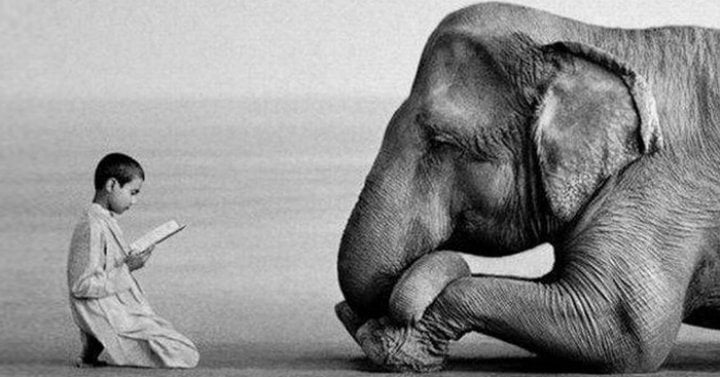
By Thich Nhat Hanh,
I believe that true justice should have compassion in it. When someone does something harmful or destructive, the destruction is done not only to the person who is the victim, but it is also done to the person who has committed the destruction. We all know that every time we say something unskillful, that can damage our relationship to the other person, making him or her suffer, we know that we have also done harm to ourselves, and created suffering for ourselves. That comes from our lack of skillfulness, our lack of mindfulness, and our lack of compassion, and we suffer as the other person suffers. Maybe not right now, but a little bit later we will suffer. The real cause of the action is our ignorance; our lack of skillfulness.
In any kind of relationship there is always a willingness not to make the other person suffer: “Darling, I don’t want to make you suffer.” That is true, but because we are not mindful enough, we do not have the right perception of what things are, and because of the negative habit energy in us, we may do things that cause others to suffer. That is not out of my willingness, because I may have made a vow to make you happy, to make you suffer less. That is why we should try to look into the nature of interbeing to see that we ourselves may be the victims of a collective consciousness, of the transmission of negative seeds by our ancestors or by our parents. If we make others suffer, that is because we are also victims.

Doing harm to others does harm to ourselves, whether we realise it or not.
So if we know how to look at the so-called criminals, we will have compassion. Society has created them like that; they have not been lucky, they have been born into a situation where social conditions, and their parents and other influences, have created that kind of behavior, and that person is very much the victim of the situation. If we see that, we see the nature of interbeing in that kind of act, we will be able to be compassionate, and the punishment that we propose in that case will be lighter because we want justice. That’s not only understanding; that’s not only compassion — although there is understanding that has brought compassion — but that’s also justice.
The Sea Pirate
Consider a sea pirate who rapes a young girl belonging to the boat people. If you have a gun you can kill him, but you cannot help him. He may have been born to a very poor fisherman along the coast, his father and his grandfather living a very hard life. In order to forget that kind of hardship, it may be that they used to drink in the evening, and they came home late at night. Perhaps the mother of the young man did not know how to read and to write and to give him a good education, and the young boy played with delinquents. When he reached the age of fourteen or fifteen he had to go to sea and help his father in the fishing business. Then when his father passed away he had to continue the business, and his life was very hard. And suddenly someone said, “You only have to make it once. The refugees might bring a little bit of gold with them, so if we stop just one refugee boat and take the gold and their valuables, then we can get out of this situation of chronic poverty. Just one!” The young fisherman agreed, and there on the high sea they caught the boat people, and he saw another person violating a lady. He looked around, and he didn’t see any policemen. So he just said, “I have never tried this. I want to try it once.” And then he became a molester, a rapist.

We are all products of our environments. Often we haven’t learned another way of acting.
If you were on the boat and you had a gun, and you shot him in order to save the girl, you could kill him, but you could not help him. Of course, you would try to do anything in order to save the girl, but if you cannot, you will shoot him. You want the girl to be alive, not to be raped, and the sea pirate not to be shot, but if there is no other way, you might choose to kill him. But he was born into that life, and he has been a victim since he has come to life. Nobody has helped him. Educators, legislators, politicians, businessmen, humanitarians, humanists, no one has helped him, and that is why he is what he is there — he is a victim. If you kill him, you can call it justice, but I think that is less than justice because he has not been helped at all.
We are a Product of Our Circumstances
When I heard news of events such as this, I could not eat. It’s difficult to eat your breakfast when you hear this kind of news, and I had to do walking meditation in the woods in order to digest that kind of hardship. During sitting meditation one night, I saw that if I had been born like that pirate, in the coastal area of Thailand, and I had such a father, such a mother, I would now be a sea pirate. We are products of our society, of our environment, to a very large extent. That’s why looking deeply helps us to understand and to have compassion. With compassion, you can always offer a kind of justice that will contain more patience, understanding, and tolerance.
Suppose someone has killed ten children. Why should he be allowed to live on? Ten people are dead; now you want another one, you want eleven. A person who has killed ten children is a sick person. Of course, we want to lock him up to prevent him from killing more, but that is a sick person, and we have to find ways to help that person. Killing him does not help him, and does not help us. There are others like him in society, and looking at him deeply we know that something is wrong with our society; our society has created people like that. Therefore, looking at him, we can see in the light of interbeing the other elements that have produced him. That is how your understanding arises in yourself, and then you see that that person is there for you to help, and not to punish. Of course, you have to lock him up for the safety of other children, but locking him up is not the only thing you can do. We can do other things to help him. Punishing is not the only thing, we can do much better.

Some prisons offer meditation and this has had very positive effects.
Recently Buddhist books on meditation, Buddhist magazines, and even Dharma talks have been offered in prisons, and many inmates have been practising accordingly. Several of them have gotten relief, and have been able to live peacefully in prison. I myself get a number of letters from prisoners, and many of them come from prisons in North America — who have read my books. One person said:
Thay, when I stand above the staircase and look down, and see other inmates running up and down, I can see their suffering, their agitation. I hope they can do as I do, walking down and up the staircase in mindfulness, following my breathing. When I do that, I feel peace within myself, and when I feel peace within myself I can see very clearly the suffering of other inmates.
That person has been able to create, to give rise to the compassion within him. You know, when we have compassion in our hearts, we don’t suffer too much. When compassion is there in our hearts, we are not the person who suffers the most.
Making a Difference
There is another prisoner who received a copy of Being Peace, a photocopy, and later on, he got the real book Being Peace, so he had two copies. He had stopped smoking, but he still kept some tobacco. One day, the fellow next to his cell banged on the wall and shouted to ask for some tobacco. Although he did not smoke anymore, he wanted to offer him this tobacco. And he took the first page of Being Peace, and he wrapped some tobacco in it, and sneaked it to the other side, with the hope that the other person might enjoy Being Peace. He himself had enjoyed Being Peace, and had started practicing sitting meditation in his cell. He just gave a small amount of that tobacco, and the next time he used page two, then page three…He was on death row.
Finally, he had transferred the whole set of copied pages to the other prisoner. It was wonderful — the other prisoner began to practice in his cell and became very quiet. In the beginning, he had banged, and shouted, and cursed. But finally he became very subdued and very calm, and he was released. In order to thank the other person, he passed in front of the cell, and they looked at each other, and together they recited one sentence from the book, which they both knew by heart. That prisoner on death row was able to write a whole book on his practice, within his cell, and the book has been published by a publisher outside.

Given the opportunity, everyone has the potential for change.
So it is clear that punishment is not the only thing we can do. There is much more we can do in order to help. Transformation and healing are possible in these difficult situations. Another prisoner wrote to me, saying:
Thay, I am very surprised to find that I can still retain my humanness in prison and that I have not gone mad. That is thanks to the practice. My only hope is that one day when I am released, and someone comes to see me and looks at my face, and says, ‘With the amount of suffering he endured in prison, yet he can look like that…’, that would be wonderful, the greatest reward that I could get.
He said that the conditions in which he lived, the suffering he endured in jail, you could not imagine. But he has managed, in order to survive, to keep his humanness alive through all these difficulties.
If we suffer less outside here and have a little bit of time, of course we can do something to help those inside. That is why killing that person only reveals our weakness. We surrender. We don’t know what to do anymore, and we give up. That is a cry of despair when you have to kill people. I hope that together we can practice looking deeply in order to find better means than to approve of capital punishment. My answer to the question is that not only can we reconcile justice and compassion, but we can also demonstrate that true justice must have compassion and understanding in it.
Source: https://upliftconnect.com
Disclaimer: We at Prepare for Change (PFC) bring you information that is not offered by the mainstream news, and therefore may seem controversial. The opinions, views, statements, and/or information we present are not necessarily promoted, endorsed, espoused, or agreed to by Prepare for Change, its leadership Council, members, those who work with PFC, or those who read its content. However, they are hopefully provocative. Please use discernment! Use logical thinking, your own intuition and your own connection with Source, Spirit and Natural Laws to help you determine what is true and what is not. By sharing information and seeding dialogue, it is our goal to raise consciousness and awareness of higher truths to free us from enslavement of the matrix in this material realm.
 EN
EN FR
FR


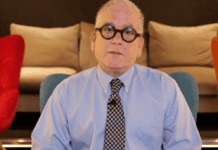
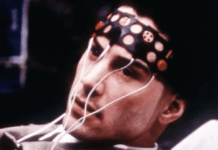
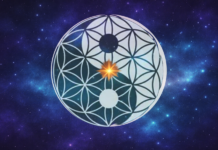
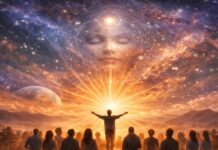


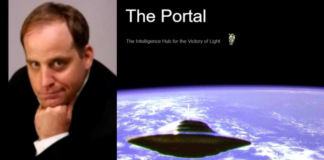

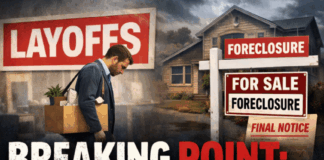















Absolutely truth. As much people having compasion and Divine Love we can change this world. WE CAN DO IT! . WE HAVE THE POWER !
VICTORY OF THE LIGHT.
This is all very true as is the human condition. We came here to learn to be more mindful, and develope compassion.